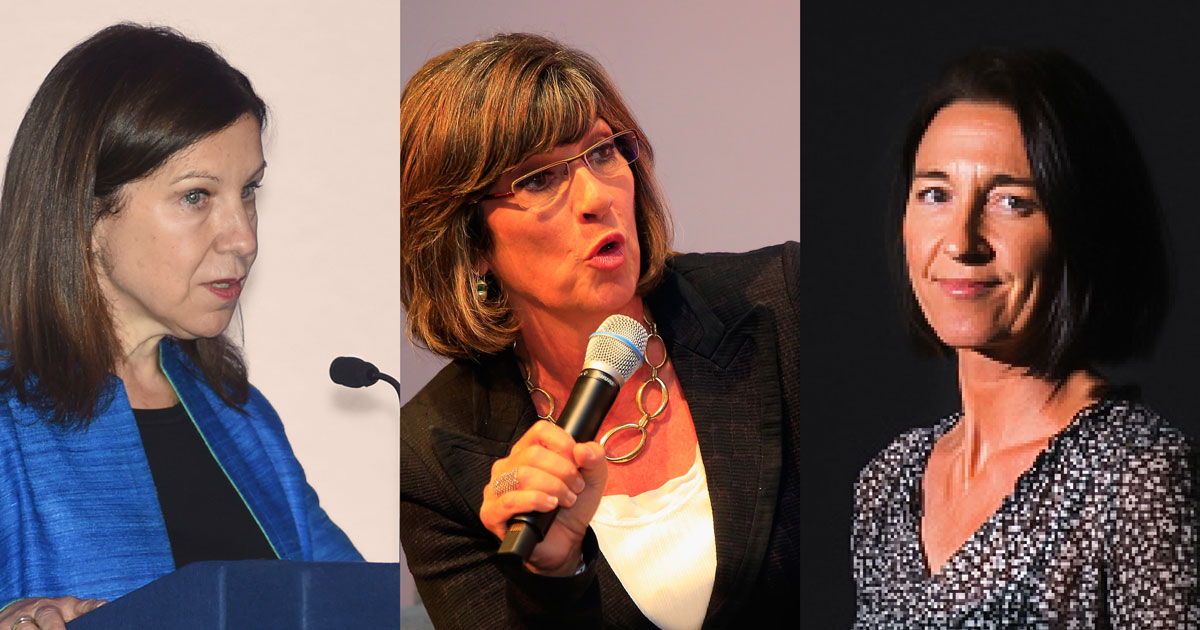

IWD 2022: Five Women Communicating the Crisis in Ukraine
I want to be honest with you. I had an article written and ready to go for International Women’s Day 2022 about allyship in the C-suite and how men can help #BreaktheBias against women in leadership, but with everything happening right now, this year feels different. The invasion of Ukraine has shaken all of us. It has already had a profound effect on our people, clients and partners and no doubt will continue to. We’re seeing deplorable violence, great suffering and a deepening refugee crisis that will impact lives in Ukraine, Russia and the neighboring region, especially the lives of women and girls.
But we’re also seeing bravery, from Ukrainian civilians and civil leaders standing up to protect each other to the innumerable journalists on the ground in Kyiv, across Ukraine in cities under bombardment, and at the borders offering newly displaced refugees safe passage. And we’re being reminded of the importance of a free and open press, of communications and of social media. For this International Women’s Day, I want to share the story of five women driving the media narrative around the crisis and showing that communications always has the power to move people to positive action.
Ursula von der Leyen
One thing the invasion has made clear: There are two wars happening — the war in Ukraine and the war we are seeing in the media, with disputes over how the conflict is being represented. At the end of February, European Commission president Ursula von der Leyen banned Kremlin-backed state media such as RT and Sputnik in the EU, signaling an intolerance for misinformation and a commitment to free access to information.
Follow Ursula von der Leyen on LinkedIn.
Lyse Doucet and Sarah Rainsford
The BBC is setting an incredible example for unbiased international coverage, including in Russia; the weekly audience for BBC’s Russian-language news site more than tripled following the invasion. Canadian journalist Lyse Doucet is the BBC’s chief international correspondent, currently (as of this writing) reporting live from Kyiv for the network. Her long-form pieces and Twitter feed provide an incredible view of life during wartime, from deserted streetscapes to journalists broadcasting from bunkers. Sarah Rainsford is BBC’s Eastern Europe correspondent, expelled from Russia last August after many years of reporting from the country. She’s now reporting on life in a war zone from Dnipro in Eastern Ukraine.
Follow Lyse Doucet and Sarah Rainsford on Twitter.
Christiane Amanpour
CNN’s chief international correspondent Christiane Amanpour brings a truly global perspective to Americans. Her reporting on the media situation in Russia and Ukraine, including the shuttering of independent Russian outlets such as TV Rain and Echo Moscow, is helping Westerners wrap their heads around the communications challenges in the region.
Follow Christiane Amanpour on Twitter.
Nataliya Popovych
Nataliya Popovych is the founder of the PR agency One Philosophy, based in Kyiv. Read her extraordinary piece that ran in PRovoke Media last week, which provides a chilling picture of the kind of business decisions no leader should have to make: evacuation plans, bomb shelters, crisis management of a different sort. She also provides a stark reminder for brands or organizations hoping to hedge their bets: “Authoritarian regimes do not need public relations. They achieve their goals via wars and propaganda.” Nataliya and her team are now playing their role in the war, defending Ukraine’s information space and explaining to the world what is happening.
Follow Nataliya Popovych on LinkedIn.
The war in Ukraine — the first of its kind in Europe in 80 years — comes as the COVID pandemic rolls into its third year and as scientists sound ever louder alarms on climate change. It's a terrible time, but it’s also a time for bravery and a time to communicate clearly and freely across borders. I stand in awe of these women, along with the countless brave journalists, business leaders and citizens who are dedicated to showing us the truth, even when it’s uncomfortable, complicated and horrific. Thank you for your courage, reminding us all that communications, at its best, can help move the world to positive action.
Photos by Stuart C. Wilson/Getty Images for Theirworld, Chris Trotman/Getty Images for USTA, and Simone Padovani/Awakening/Getty Images
The latest blogs from WE
Holiday Shopping Recap: Key Insights From Our Consumer Team
The Future of Earned Storytelling
CIIE 2024: Key Reputation Opportunities for Big Pharma


